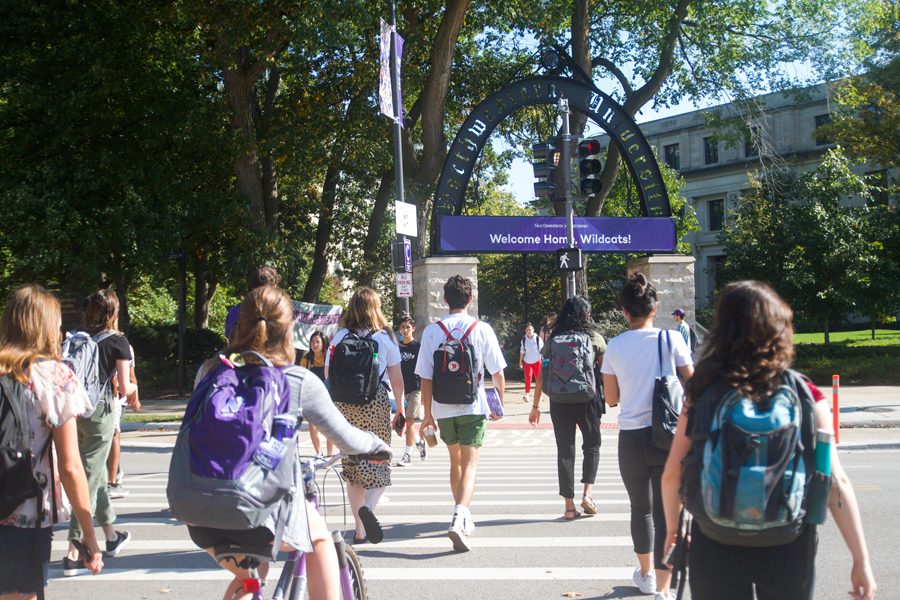Feeling homesick? You’re not alone
Alison Ma / The Daily Northwestern
(Allison Ma/The Daily Northwestern) Students walk across Sheridan Road. A 2016 survey conducted by the UCLA Higher Research Education Institute reported that more than 70 percent of college freshman experience some degree of homesickness.
October 11, 2018
Weinberg freshman Idan Katz said he regularly thinks about his home in Prague.
“I miss the whole life of it: my friends, my house, my parents, my routine,” Katz said. “I feel like homesickness carries a connotation that I’m super sad here and that I want to go home really bad. I do really want to go home and I do miss my home, but at the same time, I like it here.”
Katz isn’t alone. A 2016 survey conducted by the UCLA Higher Research Education Institute reported that more than 70 percent of college freshman experience some degree of homesickness.
As first-year students navigate the academic and social pressures of college, Northwestern administrators seek to alleviate homesickness through Counseling and Psychological Services, New Student and Family Programs and other resources tailored to the first-year experience.
Patricia Hilkert, director of NSFP, said NU offers a variety of support networks for homesick students through CAPS and the NSFP Peer Adviser program. Hilkert said Peer Advisers meet with first-years multiple times during the first quarter to check in and assess any potential problems that students might experience. If they notice anything serious, PAs can direct students to CAPS or other campus support systems for professional help, she added.
Though Hilkert said there’s no remedy for homesickness, she emphasized that NSFP seeks to offer resources for first-year students.
“You’ve just got to work through (homesickness) as best as possible,” Hilkert said. “Getting involved is the best way to help through that because that’s how you start making connections and finding people who have the same interests as you, and that’s how you start to build that support network. That’s how we do what we do here in college.”
Weinberg freshman Karen Wilson said that although she is more adjusted to campus now, she struggled with her initial transition. She said she experienced a lot of anxiety because she didn’t know anyone on campus.
“It was hard at first,” Wilson said. “I miss my friends from back home. I grew up with them, so it’s hard to be away from them.”
Wilson also said that her use of social media impacted her transition to life at NU.
In December 2016, “Computers in Human Behavior” published a study that examined the relationship between social media consumption and mental health. Researchers found that students who used social media platforms to stay connected with multiple communities tended to report higher levels of depression and anxiety than those who were less connected.
“On the one hand, it’s easier to stay in touch with friends because you can send them a Snapchat and see how they’re doing, but it can also be kind of negative to see that everyone’s already finding their place at college,” Wilson said. “Everyone’s putting an idealized version of their lives out there, and it’s intimidating.”
Email: [email protected]


